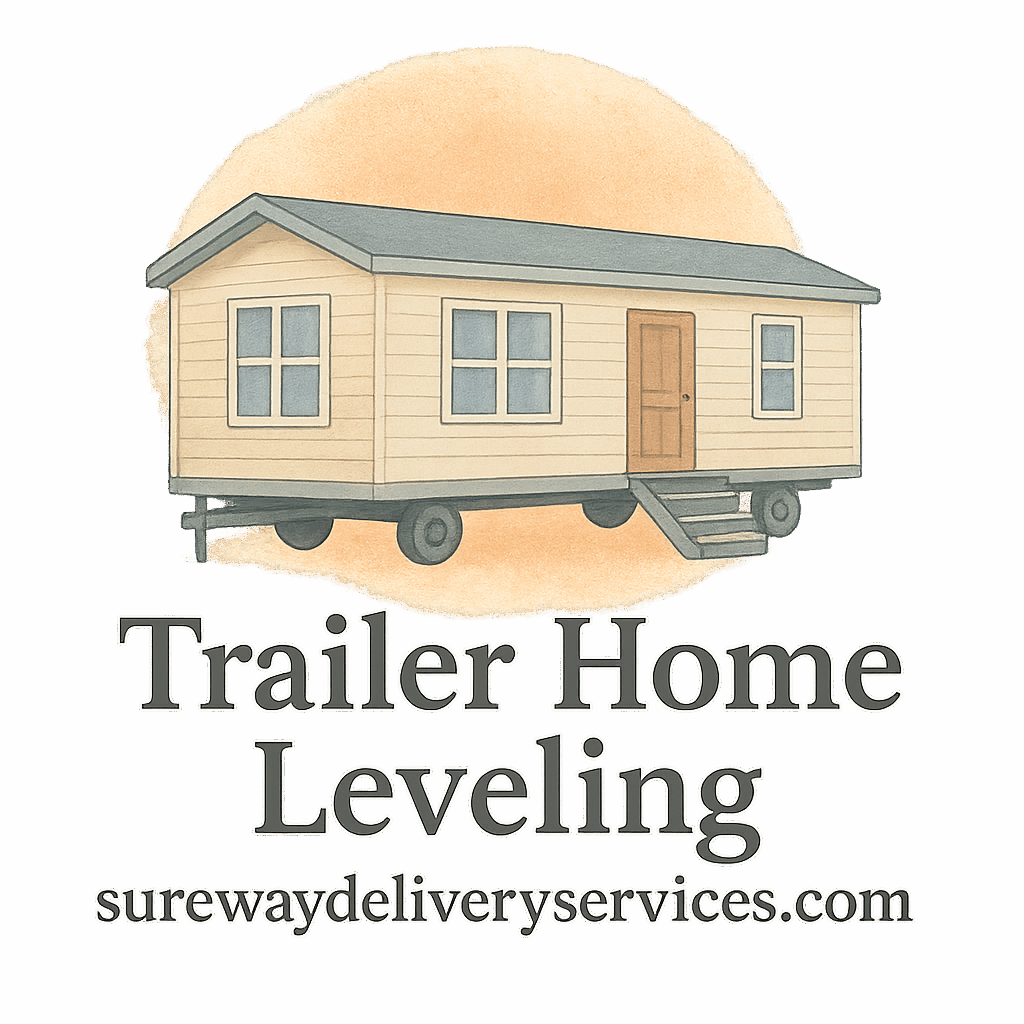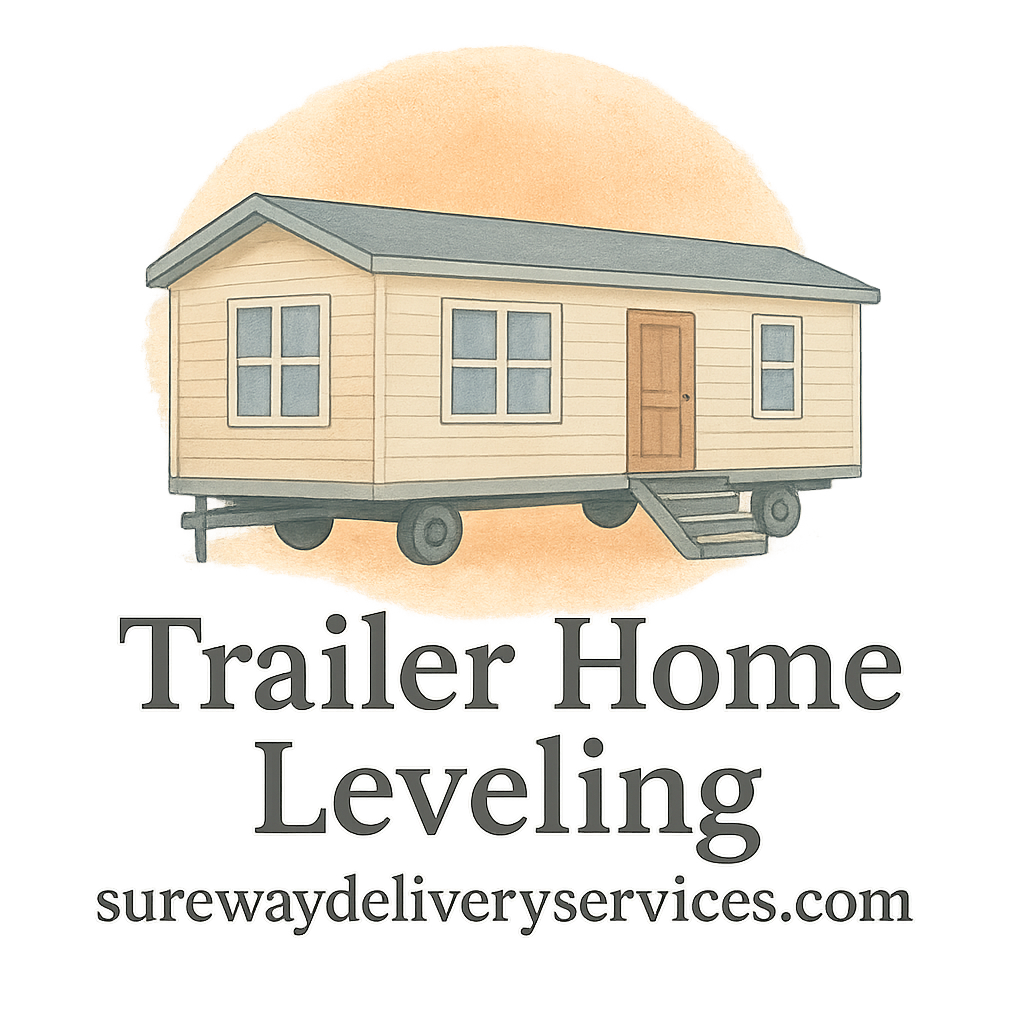When it comes to trailer homes, few things matter more than staying level. Whether you’re new to mobile living or a seasoned pro, these expert tricks will help you keep your home solid and safe for the long haul.
Understanding Why Home Leveling Matters
The Risks of an Unlevel Trailer Home
Have you noticed your doors sticking, floors squeaking, or windows not closing properly? These might not seem like big deals at first, but they’re all red flags. An unlevel home can lead to foundation issues, busted plumbing, and even structural damage.
Benefits of Maintaining Proper Leveling
Keeping your trailer level isn’t just about comfort—it’s about protecting your investment. Leveling helps maintain your home’s value, prevents costly repairs, and ensures your living space stays safe and functional.
1. Start with a Professional Inspection
Before you touch a jack or start moving skirting panels, get a pro involved.
Key Signs You Shouldn’t Ignore
If you notice cracked walls, tilting cabinets, or a “rolling” feeling when walking inside—it’s time to act. These are some of the clearest signs your trailer needs leveling.
Use This Checklist Before Starting
Want to know where to begin? Use a complete leveling checklist that covers all the essentials—from visible damage to measuring slopes with a water level.
🔗 Related Tags:
inspection, signs
2. Use the Right Leveling Tools for the Job
Manual vs Hydraulic Jacks
Manual jacks work fine for small tweaks, but if you’re doing a full leveling job, hydraulic jacks are the way to go—they’re safer and easier on your back.
Tools You Can’t Go Without
- Heavy-duty jacks
- Shims
- Concrete blocks
- Level gauge
3. Stick to a Regular Maintenance Schedule
The Best Time for Leveling Checkups
Don’t wait for something to break. Add annual inspections to your calendar—spring or fall are ideal.
How to Keep Your Trailer in Top Shape
Stay ahead with seasonal maintenance-inspection routines. Lubricate jacks, check for water damage, and inspect your skirting every few months.
🔗 Related Tags:
maintenance, annual, trailer-maintenance

4. Budget Wisely—Avoid Common Overcharges
Understand Pricing and Service Packages
Not all services are priced fairly. Check for transparent pricing and compare service-packages before committing.
Red Flags in Cost Estimates
Be wary of vague or open-ended quotes. Reputable companies should provide clear cost-tips, not leave you wondering what you’re paying for.
🔗 Related Tags:
cost-budgeting, overcharge, price
5. Choose a Trustworthy Leveling Service
What to Look For in a Contractor
The right leveling service can make all the difference. Look for experience, licensing, and word-of-mouth recommendations.
Real Customer Reviews Matter
Don’t rely on ads—real customer-reviews tell the real story. Reviews highlight quality, punctuality, and pricing fairness.
🔗 Related Tags:
service-hiring, trailer-service
6. Master Modern Leveling Techniques
From Cross-Bracing to Pier Adjustments
Leveling methods have evolved. Techniques like cross-bracing and custom pier systems provide extra stability—especially in harsh climates.
When to Try a New Leveling Method
If your home shifts every season, it might be time for a more permanent solution. Learn modern techniques-methods that suit your home’s structure.
7. Learn from Past Success Stories
What Experienced Homeowners Did Right
Tap into community wisdom. Browse success-stories to see how others fixed similar problems affordably and effectively.
Avoiding the Mistakes Others Made
Everyone makes mistakes, but you don’t have to repeat them. Learn what not to do by checking stories of common trailer-issues.
8. Keep Up With Trailer Home Details
Understanding Your Trailer’s Unique Design
Every trailer is different. Knowing the specs of your home helps you select the right equipment and strategy.
Adjustments Based on Structure Type
Leveling a single-wide is different from a double-wide or fifth wheel. Start with the basics-introduction to get a solid understanding.
🔗 Related Tags:
trailer-details, trailer-home, trailer-leveling
Final Thoughts: Making Leveling a Lifestyle
Here’s the truth—leveling your trailer home isn’t a one-time event. It’s a mindset. With regular checkups, the right tools, and a good support team, you’ll not only stay level—you’ll stay ahead.
Don’t forget to explore TrailerHomeLeveling.com for more guides, tools, and tips to stay rock solid.
FAQs
1. How often should I level my trailer home?
At least once a year or after extreme weather changes.
2. What are the signs my home needs leveling?
Doors sticking, uneven floors, cracked walls, and loud creaks.
3. Can I level my home myself?
Yes, with the right tools and a bit of know-how. But complex issues need pros.
4. What’s the average cost of home leveling?
It ranges from $500–$3,000 depending on the extent and location. Learn more on cost-budgeting.
5. What tools do I need to level my trailer?
Hydraulic jacks, level gauge, concrete blocks, and shims are the essentials.
6. How do I find a trustworthy service provider?
Look at customer-reviews, check licenses, and ask for quotes.
7. Where can I learn more about trailer leveling techniques?
Visit the techniques-methods page for in-depth tutorials and expert strategies.


